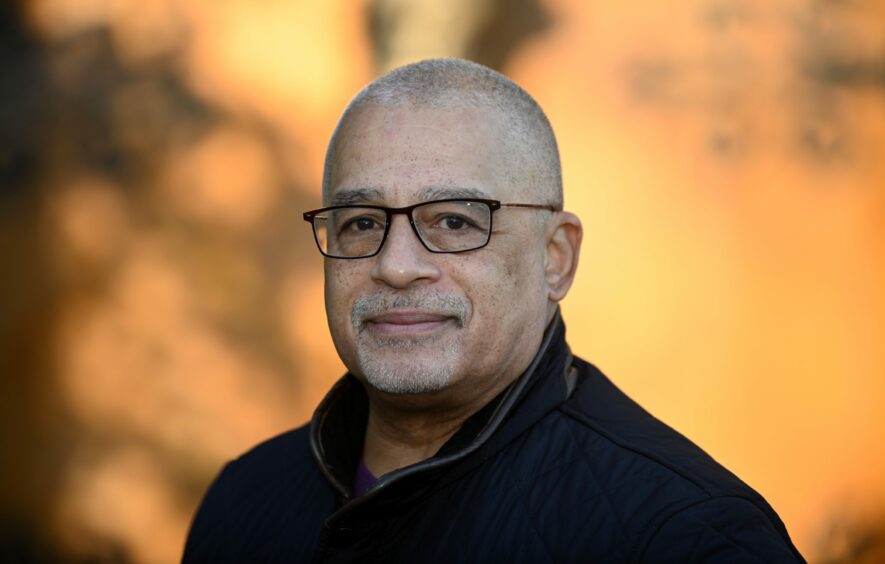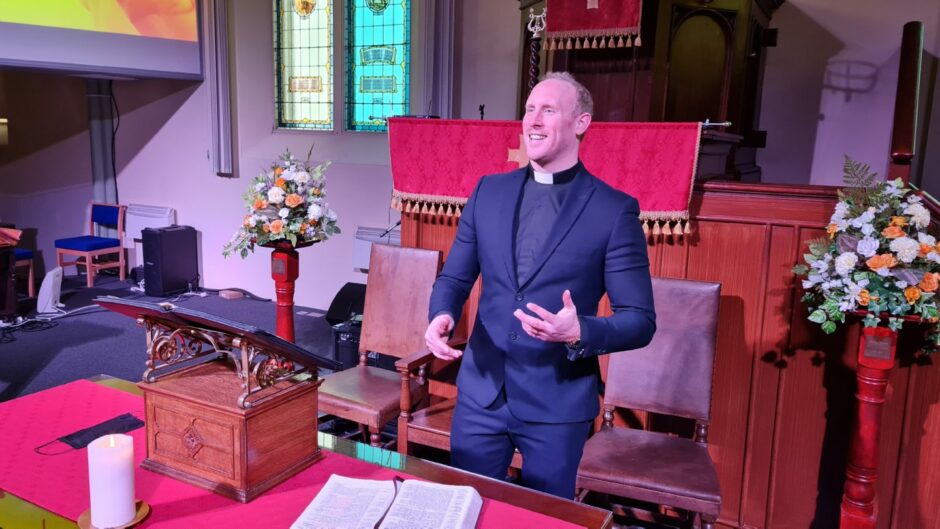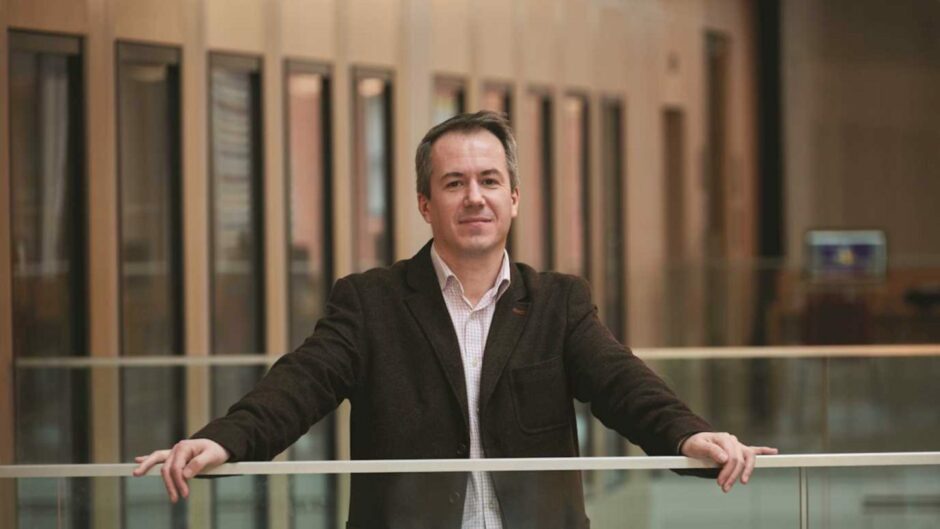Are young people turning to faith?
Evidence suggests children and young people are reversing decades of decline in spirituality.
Increased access to online services, plus a longing for meaning in uncertain times, has led to greater numbers of young people seeking solace in the church.
With Covid restrictions bringing our lives to a crashing halt, many people have for the first time been given the time and space to ponder life’s bigger questions.
According to Google Trends data, for every 80,000 new Covid diagnoses, Google searches for the word ‘prayer’ double.
Fifth of millennials read bible weekly
But even before the pandemic, the Barna report in 2015 showed that 20% of millennials (those born between 1981 and 1996) were accessing the Bible at least once a week.
And evidence is increasing that even younger people are now turning to faith.
A Yougov poll last December showed that those in Generation Z – those born between 1996 and 2010 – are more likely to believe in God than millennials.
A report on the poll suggested that “the trend for younger people being less religious is changing”.
Moreover, the report said that the shift to online has contributed to building and bolstering teens’ faith.
Accessing information about faith and finding like-minded people online has never been easier.
Virtual services attracting different crowd
Last Christmas, ministers across the presbytery of Aberdeen and Shetland reported a surge in interest in faith during the pandemic.
Robert Smith, minister at Rubislaw Parish Church in Aberdeen, suggested the forced move to online services had changed things. He felt virtual services had attracted people who would never usually engage with the church and its message.
“I think people are finding it more convenient than at a set time on a set day in a set place,” said Mr Smith.
“There is also the anonymity of it – they can present their hopes, fears and doubts as they listen to a service online in the privacy of their own homes.
“They can pray, cry, sing, rant or whatever they are feeling without worrying about others’ judgements.
“This is something we will continue to offer after the pandemic is over.”
‘More youngsters connecting to faith’
Margaret King, convenor of Moray Presbytery’s mission and service committee, reported a similar growth in interest from young people.
“Because of Covid and the exponential rise in online and livestream worship, there is anecdotal evidence that more young people have been connecting to faith,” she said.
Scripture Union (SU) movements operate across the world, including Scotland, with the aim of engaging children and young people in the Bible and Jesus.
In Aberdeen, the movement held a Holidays Unleashed event in the summer at Newhills Church in the city, with activities for primary and secondary kids including archery tag and bushcraft.
Reverend Jonny Clipston, minister at Newhills Church, said the short summer events are a great way for young people and their local church to get to know each other.
He said: “The way I see it, there are lots of young people growing up feeling isolated in their faith.
“They don’t know others like them and they may be in a church where there aren’t many others of their age.
“That’s one of the things that Scripture Union can really help with.
“Perhaps events like this year’s Holidays Unleashed will act as a stepping stone.
“We often think of SU Scotland as a missional organisation, connecting with young people who are outside of the church. That’s a very important thing that we do.”
47% more young people attending church event since pandemic
Susan van der Plas is a project worker at The Samuel Trust, an Aberdeen-based Christian organisation which supports children and families in the city.
It liaises with local schools, churches and community groups to find ways to support children and families, and engage with their needs, whether emotional, physical or spiritual.
At the group’s latest Big Day Out in November, a full-day event for children at The Mission Church, it reported a 47% increase in attendance compared to before the pandemic.
“The parents and children know the format now and are keen to keep coming along,” said Susan.
“We are slowing regaining the trust and support of the schools. At least two of the schools are keen to get us back in to do storytelling, activities and clubs.
“Before and during the pandemic I saw evidence of an openness and curiosity among the children regarding faith and belief in God, and a willingness to hear more.”
‘More kids are asking about faith. They’re crying out for change’
A youth outreach worker at one Aberdeen church reported increasing numbers of young people approaching the church, particularly in the “14 to 17 age range”.
They said: “I do see young people coming up and asking about faith. They’re crying out for change in their lives.
“We had one lad who is now finished with school and actually doesn’t have a next positive destination, which was so sad to hear. He just looked lost.
“One girl who was sat at our steps smoking cannabis with her friend said: ‘I think I might need to know about Jesus’.
“There seems to be an emptiness with some young people, they feel empty. ‘Things’ aren’t enough for them, they’re seeking something else. That’s definitely something I’m noticing.
“We’re in a pandemic, which has been particularly tough for young people.
“Personally, I don’t know how I’d have got through this pandemic without my faith. So that’s perhaps a factor as well in these youngsters coming to our church porch and wanting to talk. I find young people are very open with you if you’re very open with them.
“The conversations I’ve had would suggest that young people are reaching out for meaning, support and belonging.”
‘Young people are looking for something’
Young people certainly seem to be ‘seeking’.
Stoicism – part-philosophy, part-therapy – focuses on living a ‘good’ life, giving up materialism and futile emotions like anger, resentment and jealousy.
With roots in ancient Greece, the philosophy bears a striking resemblance to Christianity. Both promise a peace and security which leads to happiness, or at least contentment.
Over the last few years, the internet has exploded with blogs, YouTube videos, courses and podcasts all devoted to Stoicism.
Dr John Sellars, author of the 2019 bestseller ‘Lessons in Stoicism’, believes more young people than ever are turning to Stoicism.
He told the Press and Journal: “Until the 2008 financial crash, there was this narrative that everything was getting better. Everyone was consistently getting richer. In the UK house prices were going up. People were spending loads of money on credit on the assumption that everything would be fine in the future.
“There was a general level of optimism, there was that New Labour ‘things can only get better’ sort of thing.
“And then, suddenly, it all blew up in everyone’s faces.
“And I think, particularly with the younger generation who have grown up since that time, their rising concern over environmental problems, the idea that they might never be able to afford to buy a house, that they may never be as wealthy as their parents – which was the narrative throughout the 20th century, that kind of optimism has just gone.
“So young people are looking for something.”
More from the Schools and Family team
‘I’ve never seen everyone so exhausted’: nursery boss in Omicron impact warning
Counting the cost of Christmas: Families spending record-breaking amounts





